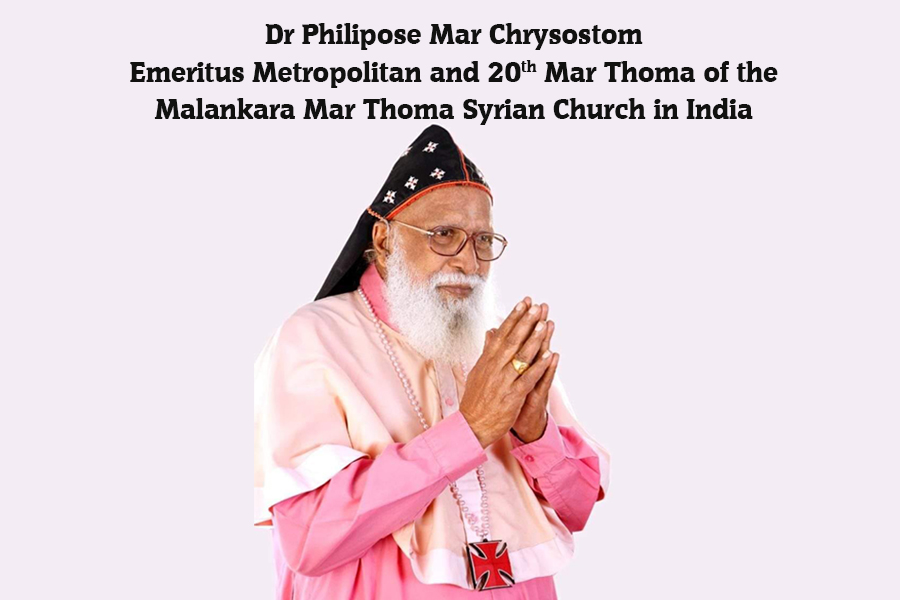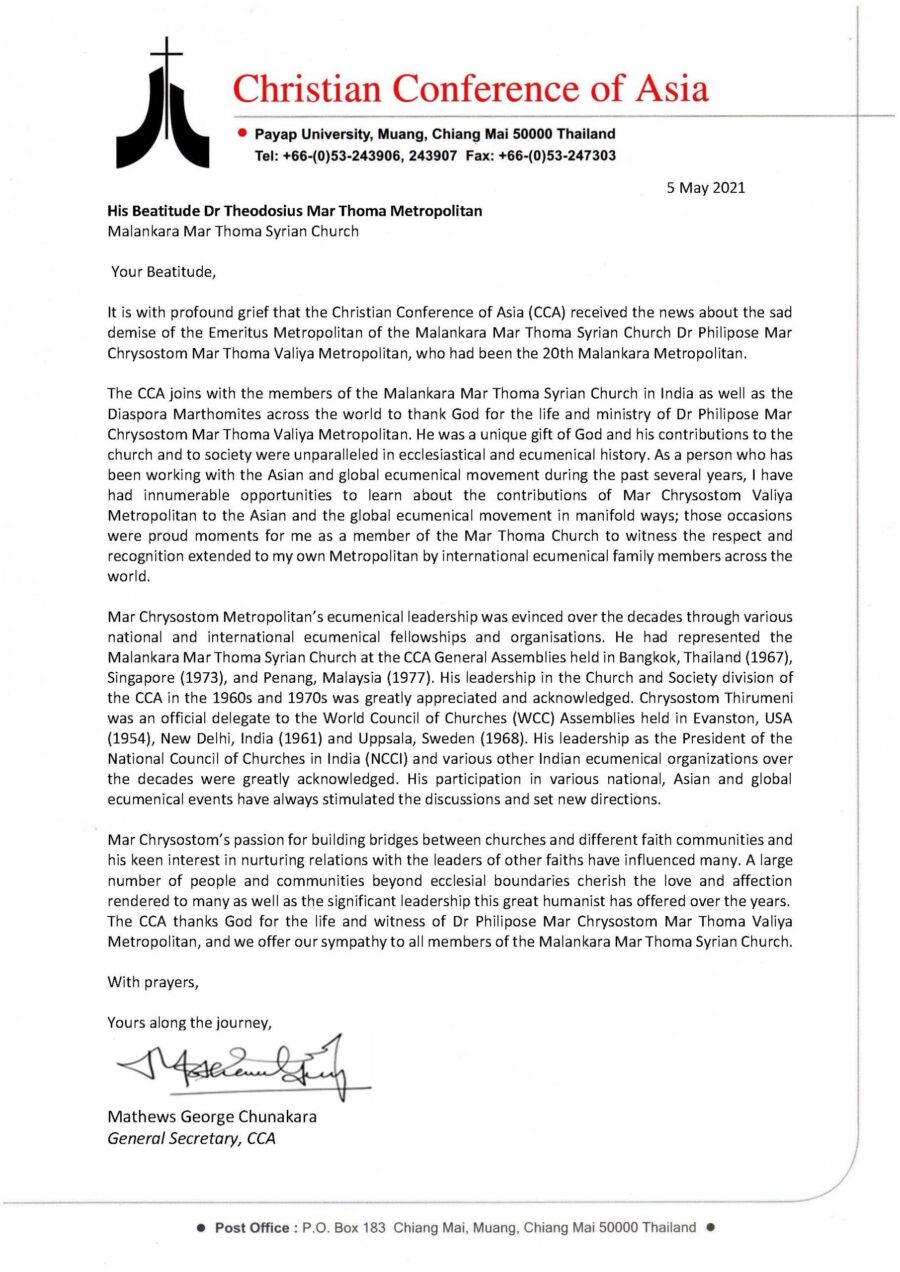Emeritus Metropolitan and 20th Mar Thoma Dr Philipose Mar Chrysostom passes away

Former head and Emeritus Metropolitan of the Malankara Mar Thoma Syrian Church in India, His Eminence Dr Philipose Mar Chrysostom Mar Thoma Valiya Metropolitan, the 20th Mar Thoma, passed away in the early hours of Wednesday, 5 May 2021, of age-related ailments.
Mar Chrysostom has been at the helm of ecclesiastical and ecumenical movements for over seven decades.
Born on 27 April 1917, Mar Chrysostom had just turned 103 last week and stepped into his 104th year. He was considered to be the longest-serving Bishop in the world.
Mar Chrysostom was a widely respected religious dignitary who had a global vision for humanity. In 2018, Mar Chrysostom was awarded the Padma Bhushan, one of the highest civilian awards of honour by the Government of India, in recognition of his distinguished leadership in various fields. He is the only Christian bishop to receive such an honour in India.
During his active service in the episcopacy for more than half a century, he administered various dioceses of the Mar Thoma Church in India as well as in other continents; the Diaspora Marthomite communities are now spread in Europe, North America, Africa, West Asia (Middle East), as well as in most Asian countries including Australia and New Zealand.
Dr Philipose Mar Chrysostom provided leadership in the Christian Conference of Asia (CCA) through its Church and Society division in the 1960s and 1970s.
Mar Chrysostom represented the Malankara Mar Thoma Syrian Church at the CCA General Assemblies held in Bangkok, Thailand (1967), Singapore (1973), and Penang, Malaysia (1977), and was the official delegate to the World Council of Churches (WCC) Assemblies held in Evanston, USA (1954) and Uppsala, Sweden (1968).
He served as the President of the National Council of Churches in India (NCCI) and various other Indian ecumenical organisations.
Dr Mathews George Chunakara, the General Secretary of the CCA, expressed condolences on behalf of Asian churches and the Asian ecumenical movement and stated, “Dr Philipose Mar Chrysostom Metropolitan was a unique gift of God and his contributions to the church and society are unparalleled in recent ecclesiastical and ecumenical history.”
“Mar Chrysostom was an ardent supporter and promoter of wider ecumenism and the Asian ecumenical movement. The insights and innovative ideas he had contributed to the East Asia Christian Conference (EACC), the forerunner of CCA, helped the EACC/CCA immensely in its formative years. His active participation in different committees of the CCA, especially in the Church and Society programme, was most encouraging and beneficial in enabling the CCA in its early years to build up and articulate its theological positions and missiological convictions,” added Dr Mathews George Chunakara.
The funeral will be held in a special cemetery at the Mar Thoma Church’s headquarters in Thiruvalla, Kerala, India, on Thursday, 6 May 2021.
The full text of the CCA General Secretary's Condolence Message can be found here:











